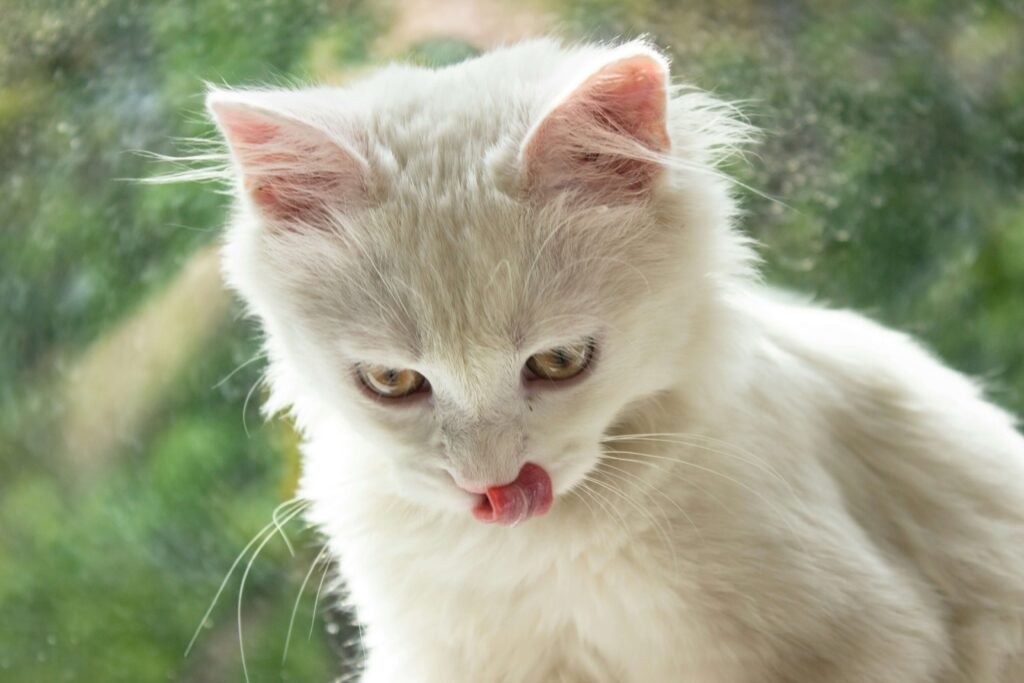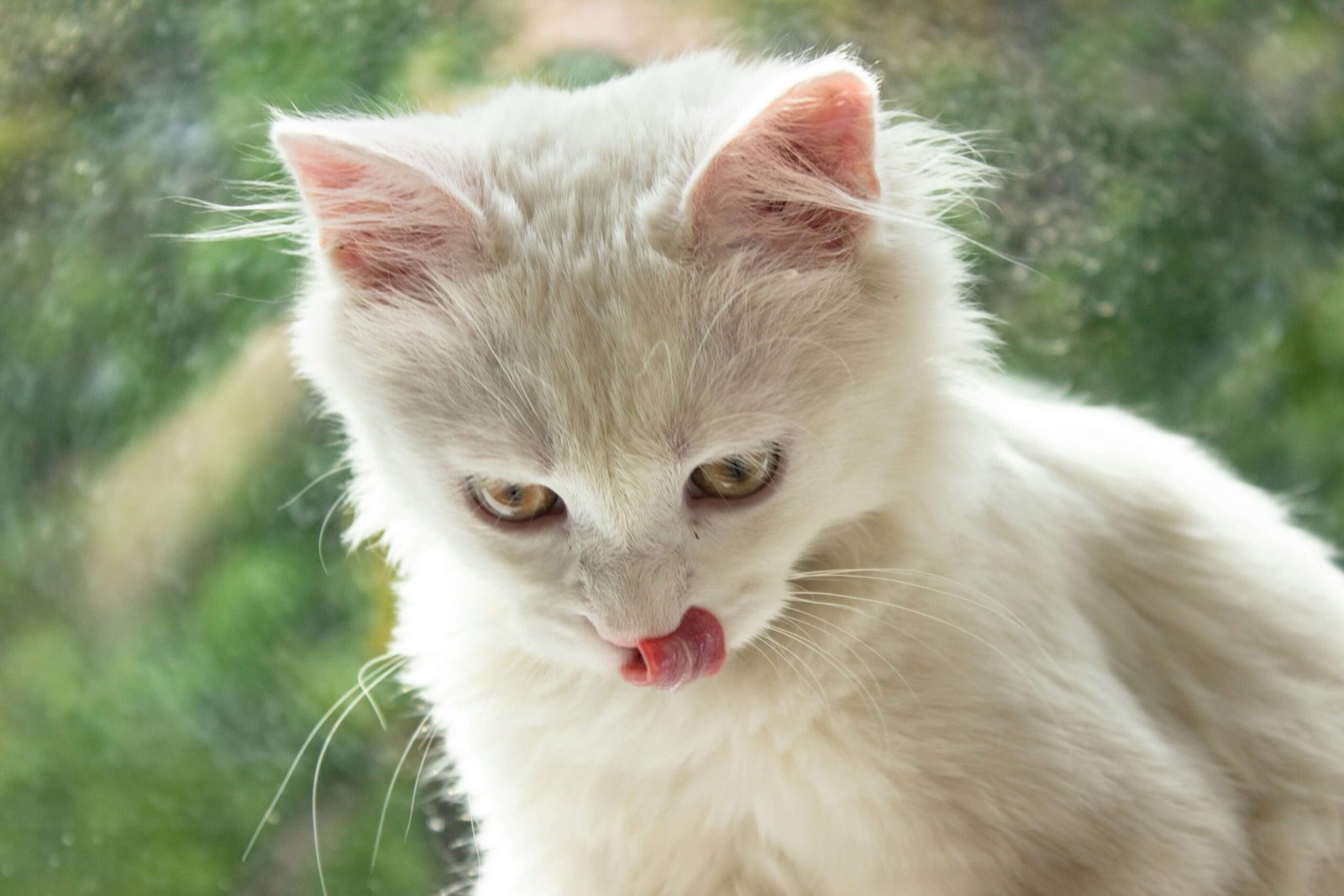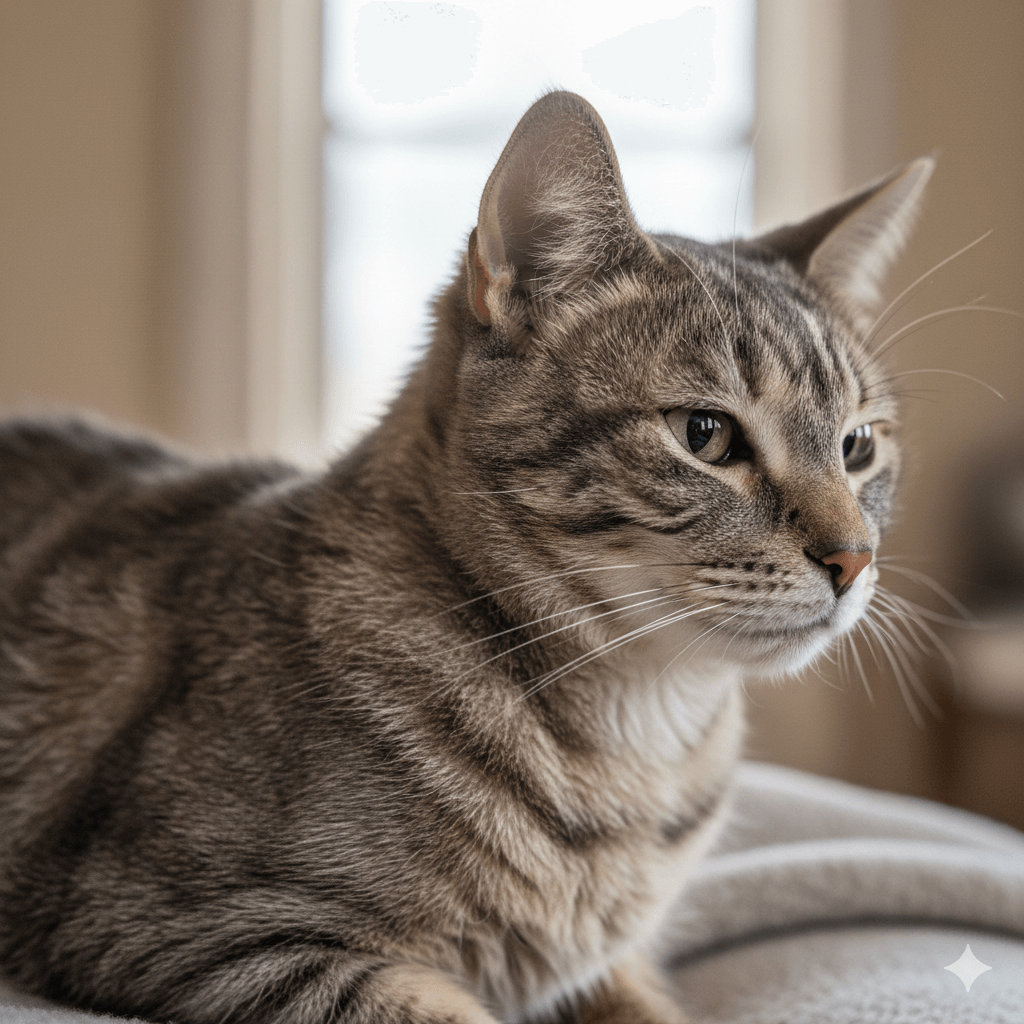Why Does My Cat Stick the Tip of His Tongue Out?
Have you ever noticed your feline friend sticking the tip of their tongue out in an adorable yet puzzling way? This quirky behavior might seem random, but it actually has several explanations rooted in biology, health, and personality. Whether it’s a sign of relaxation, curiosity, or an underlying issue, understanding this behavior can help you bond better with your furry companion. Let’s dive deeper into the reasons behind this endearing habit and what it means for your cat’s well-being.
Common Reasons Behind the Tongue-Out Behavior
Cats are fascinating creatures, and their behaviors often leave us scratching our heads. Here are some common reasons why your cat might stick their tongue out:
Relaxed State: Cats sometimes let their tongues hang out when they’re completely at ease. It’s similar to how humans might yawn or stretch when feeling comfortable.
Flehmen Response: This is a biological phenomenon where cats curl their lips and slightly stick out their tongues to analyze scents. It helps them process pheromones in the air.
Teething or Dental Issues: Kittens may stick their tongues out while teething, whereas adult cats might do so due to dental pain or discomfort.
Brachycephalic Breed Trait: Flat-faced breeds like Persians or Scottish Folds often have trouble keeping their tongues fully retracted because of their unique facial structure.
Respiratory Problems: Difficulty breathing can cause cats to pant or leave their tongues out as a way to regulate airflow.
Understanding these reasons can give you valuable insights into your cat’s health and emotional state. If the behavior seems unusual or persistent, consulting a vet is always a good idea.
Signs That Your Cat’s Tongue-Out Habit Is Normal
While occasional tongue-out moments are usually harmless, it’s important to distinguish between normal quirks and potential red flags. Here’s what to look for:
Consistency: If your cat only sticks their tongue out occasionally during playtime or naps, it’s likely just a quirky habit.
Accompanying Behaviors: Watch for signs of contentment, such as purring or kneading, which indicate that the behavior is stress-free.
No Physical Discomfort: Ensure there are no visible signs of injury, swelling, or irritation around the mouth area.
Healthy Eating Habits: A healthy appetite and regular eating patterns suggest that dental issues aren’t interfering with their daily life.
Normal Breathing Patterns: Check if your cat breathes easily without wheezing or gasping, which could signal respiratory problems.
By observing these indicators, you can gauge whether your cat’s tongue-out behavior is part of their charming personality or something more serious.
Check this guide 👉Why Do Cats Open Their Mouths? Best 7 Behavior Tips!
Check this guide 👉Why Does My Cat Lick Me When I Pet Her? Best 7 Expert Tips!
Check this guide 👉Why Does My Cat Lick My Face? Best 7 Expert Tips!

Behavioral Indicators | Health Indicators |
|---|---|
Occasional tongue poking | No visible injuries in the mouth |
Happens during relaxed states | Regular eating habits |
Accompanied by purring or kneading | Easy and steady breathing |
Flehmen response to strong scents | Clean teeth and gums |
Seen in brachycephalic breeds | Absence of drooling or bad breath |
When Should You Be Concerned About Your Cat’s Tongue-Out Behavior?
While many instances of tongue-out behavior are harmless, certain scenarios warrant closer attention. Consider these warning signs:
Persistent Poking: If your cat consistently leaves their tongue out for long periods, it could indicate an underlying issue.
Difficulty Retracting the Tongue: Inability to pull the tongue back inside the mouth might point to neurological or muscular problems.
Excessive Drooling: Saliva dripping alongside the tongue-out pose could be linked to dental disease or poisoning.
Lethargy or Loss of Appetite: These symptoms combined with tongue-out behavior may suggest systemic illnesses.
Unusual Odors from the Mouth: Bad breath accompanied by tongue protrusion could mean gum disease or infections.
If any of these signs accompany the behavior, don’t hesitate to seek professional advice from your veterinarian.
Fun Facts About Cats and Their Tongues
Did you know that a cat’s tongue plays a vital role beyond tasting food? Here are some intriguing facts:
Barbed Texture: A cat’s tongue feels rough because it’s covered in tiny, backward-facing spines called papillae, which help groom fur and strip meat from bones.
Temperature Regulation: Cats use their tongues to cool down through panting, much like dogs, though this is less common.
Unique Taste Buds: Unlike humans, cats lack specific receptors for sweetness but excel at detecting amino acids found in proteins.
Grooming Tool: A cat spends up to 50% of their waking hours grooming themselves, using their tongue as a natural comb.
Communication Aid: Sticking out their tongue can sometimes serve as a non-verbal cue to communicate curiosity or confusion.
These fun facts highlight the versatility and importance of a cat’s tongue in their everyday lives.
How to Encourage Healthy Tongue Behavior in Cats
Promoting good oral health and overall well-being can help minimize unusual tongue behaviors in cats. Here are some tips to keep your cat’s tongue habits healthy:
Regular Dental Check-Ups: Schedule annual vet visits to monitor your cat’s teeth and gums for any signs of disease or discomfort.
Provide Dental Toys: Chewable toys designed for cats can help reduce plaque buildup and encourage natural tongue movement.
Offer Balanced Nutrition: A diet rich in essential nutrients supports overall health, including oral hygiene and muscle function.
Monitor Stress Levels: Create a calm environment to prevent stress-related behaviors that might affect your cat’s tongue posture.
Groom Your Cat Regularly: Help them maintain cleanliness, reducing the need for excessive grooming that might strain their tongue muscles.
By taking these proactive steps, you can ensure your cat’s tongue behavior remains both adorable and healthy.
Fun Ways to Bond Over Your Cat’s Tongue Quirks
Your cat’s tongue-out moments can be an opportunity to strengthen your bond. Here are some fun ways to engage with your feline friend:
Capture the Moment: Take photos or videos of your cat sticking their tongue out to cherish these quirky expressions.
Reward Relaxation: Offer treats or gentle praise when your cat displays this behavior during calm, happy moments.
Play Scent Games: Introduce new scents (like catnip or feather toys) to trigger their flehmen response and observe their reactions.
Interactive Grooming Sessions: Use a soft brush to mimic their grooming routine, fostering trust and affection.
Create a Tongue Diary: Document when and where your cat sticks their tongue out to identify patterns and preferences.
These activities not only enhance your connection but also make the experience more enjoyable for both you and your cat.
Common Misconceptions About Cats Sticking Their Tongues Out
There are several myths surrounding why cats stick their tongues out. Let’s debunk some of the most common misconceptions:
Myth: It’s Always a Sign of Illness: While it can indicate health issues, many instances are simply behavioral or breed-specific traits.
Myth: Cats Do It to Be Cute: Though it may seem intentional, this behavior is usually instinctual or situational rather than deliberate.
Myth: Only Kittens Exhibit This Behavior: Adult cats also display tongue-out moments, often due to curiosity or relaxation.
Myth: It Indicates Hunger: Unlike dogs, cats rarely associate tongue protrusion with mealtime unless they’re licking their lips.
Myth: It’s Exclusive to Certain Breeds: While brachycephalic breeds show it more, all cats can exhibit this behavior under the right circumstances.
Understanding these truths helps clarify what’s normal and what might require further investigation.
FAQ
Why does my cat stick their tongue out after sniffing something?
This could be the flehmen response, where cats analyze scents using their vomeronasal organ (Jacobson’s organ).
Is it normal for kittens to stick their tongues out?
Yes, especially during teething phases or playful activities.
Can sticking the tongue out indicate a medical problem?
Sometimes, yes. Persistent tongue-out behavior could signal dental issues, respiratory distress, or neurological conditions.
Do all cat breeds exhibit this behavior equally?
Not necessarily. Brachycephalic breeds are more prone to leaving their tongues out due to their facial structure.
Should I worry if my cat suddenly starts sticking their tongue out frequently?
Sudden changes in behavior should always be monitored. Consult a vet if the behavior persists or is accompanied by other symptoms.
Understanding Your Cat’s Quirky Habits
Cats are full of surprises, and their tendency to stick the tip of their tongue out is just one example of their unique charm. From expressing relaxation to investigating scents, this behavior offers a glimpse into their world. While most cases are perfectly normal, staying vigilant about changes in frequency or accompanying symptoms ensures your cat remains happy and healthy. By paying attention to these subtle cues, you deepen your connection with your feline companion and enhance their quality of life. After all, every little quirk makes your cat even more special!
How to Check Your Cat for a Fever: Best 7 Expert Tips! – Learn the signs, safe temperature checks, and when to see a vet. Keep your feline healthy and happy!
How to Check Your Dog for a Fever: Best 7 Expert Tips! – Learn the signs, safe temperature checks, and when to see a vet if your dog has a fever.
Hypothyroidism and Its Impact on Cat Skin: Best 7 Tips! – Discover how hypothyroidism affects your cat’s skin, spot symptoms early, and learn effective care strategies to keep your feline healthy.
Hypothyroidism and Its Impact on Dog Skin: Best 7 Tips! – Discover how hypothyroidism affects your dog’s skin, spot symptoms early, and learn effective care strategies to restore their health.





